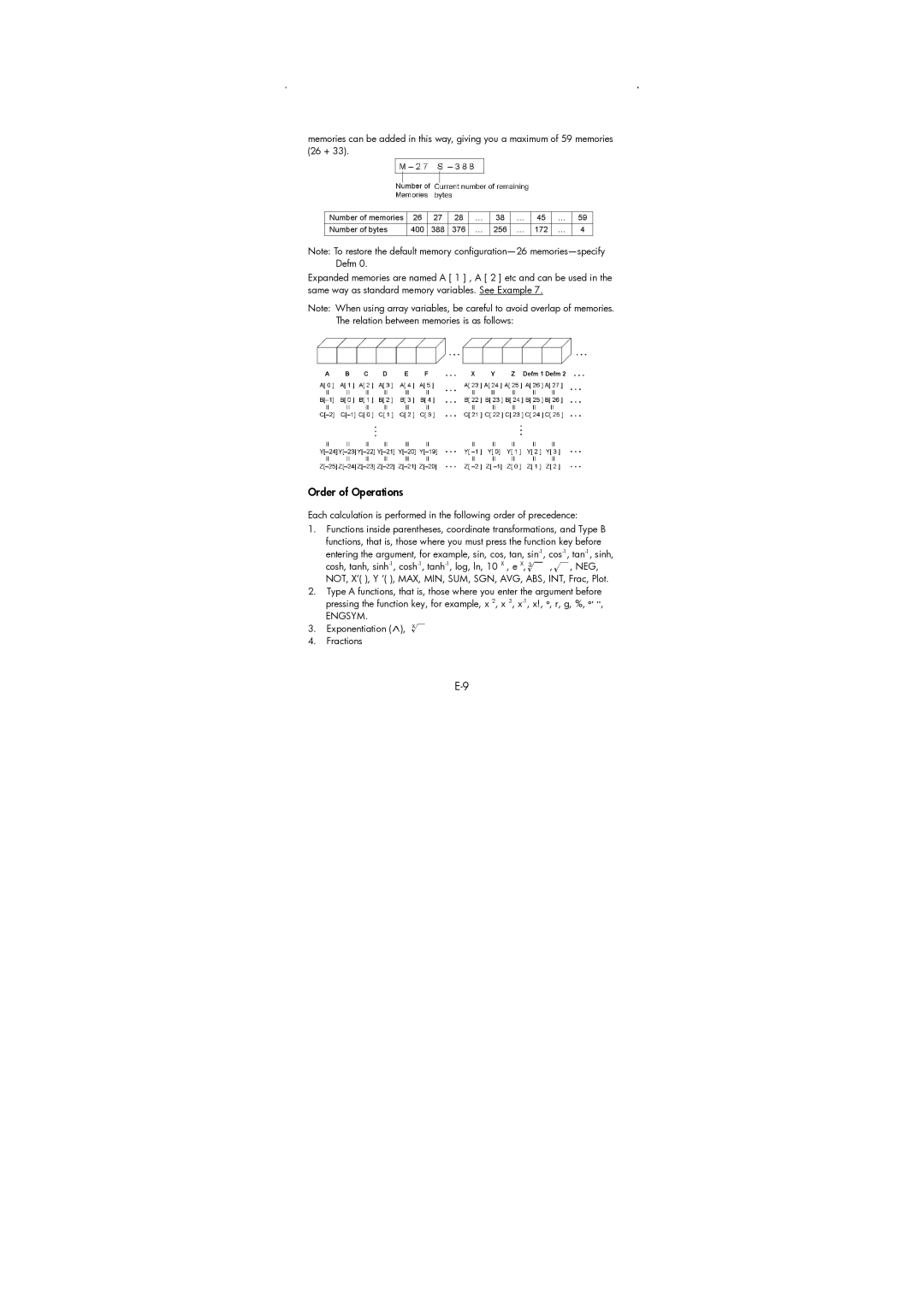
memories can be added in this way, giving you a maximum of 59 memories (26 + 33).
Note: To restore the default memory
Expanded memories are named A [ 1 ] , A [ 2 ] etc and can be used in the same way as standard memory variables. See Example 7.
Note: When using array variables, be careful to avoid overlap of memories. The relation between memories is as follows:
Order of Operations
Each calculation is performed in the following order of precedence:
1.Functions inside parentheses, coordinate transformations, and Type B functions, that is, those where you must press the function key before
entering the argument, for example, sin, cos, tan,
cosh, tanh, ![]() , NEG, NOT, X’( ), Y ’( ), MAX, MIN, SUM, SGN, AVG, ABS, INT, Frac, Plot.
, NEG, NOT, X’( ), Y ’( ), MAX, MIN, SUM, SGN, AVG, ABS, INT, Frac, Plot.
2.Type A functions, that is, those where you enter the argument before
pressing the function key, for example, x 2, x 3,
ENGSYM.
3.Exponentiation (![]() ),
), ![]()
4.Fractions
